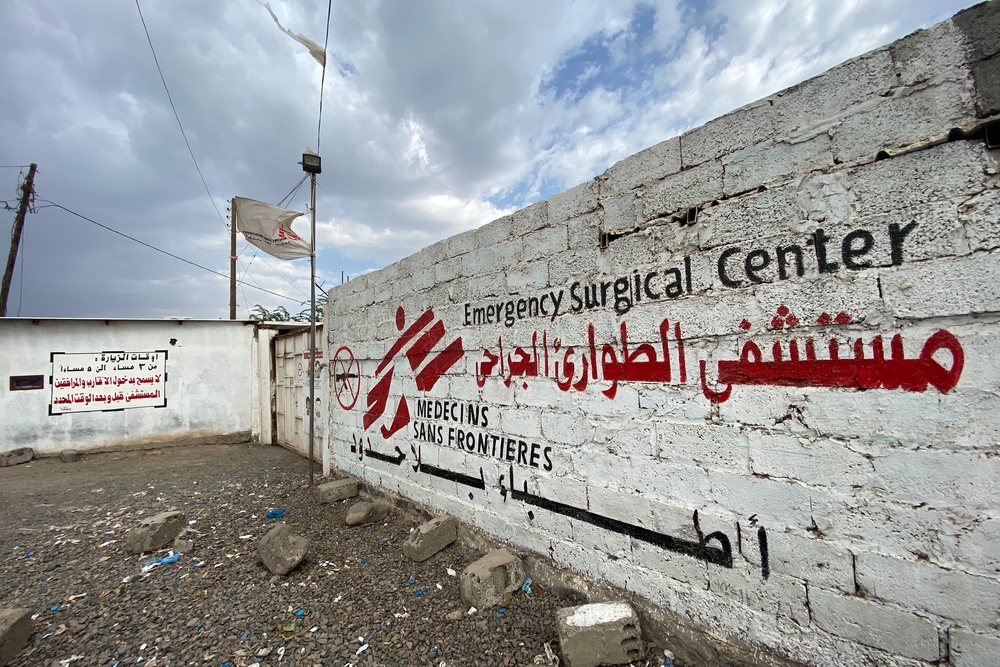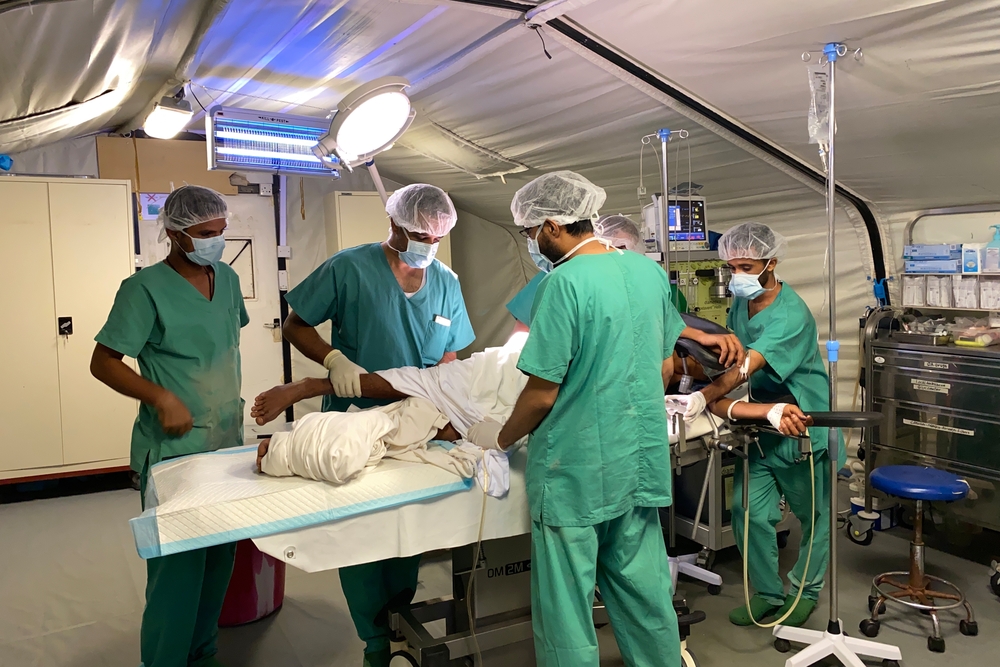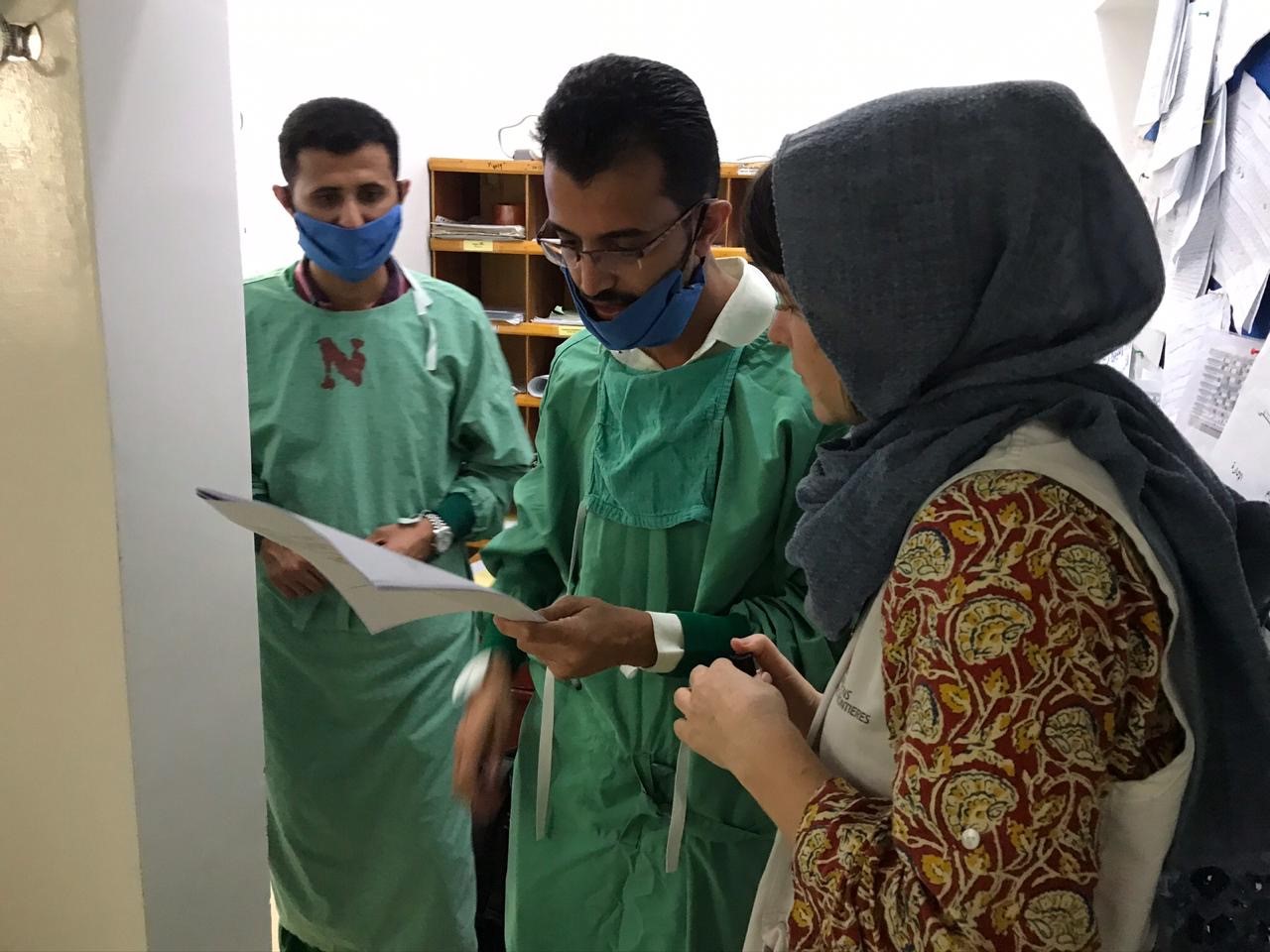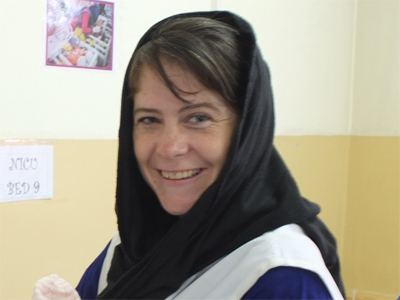Wounded women and children
Since the end of November, staff at the MSF trauma hospital in Mocha have seen a significant change in patients presenting to the hospital. With increasingly active frontlines in the north and changes to military activities, the vast majority of severely wounded patients presenting at MSF’s trauma hospital are now women and children.
In late November, seven civilian patients were wounded on their way back from a wedding when a roadside bomb exploded—five people were killed in the explosion, including a child. Two children found an unexploded munition on the roadside that exploded when they threw it to the ground; they were brought to MSF with severe abdominal and chest trauma wounds. In early December our teams admitted six people wounded when a milk-bottling factory was shelled, with patients saying at least ten of their co-workers were killed in the strike.
One woman who was treated at the MSF hospital had been at a clothing sale in a house in her village of Al Qazah with relatives. She doesn’t remember the explosion, but her father told her afterwards that a shell had landed on them; the reed and palm leaf house offered no protection. The woman woke up in the MSF hospital, having undergone emergency surgery to correct a rough amputation to both of her legs. Nine of her relatives, including five children, were killed in the attack. An 11-month-old child severely injured was immediately taken by ambulance to the more advanced MSF hospital in Aden, but the child died before they arrived.






